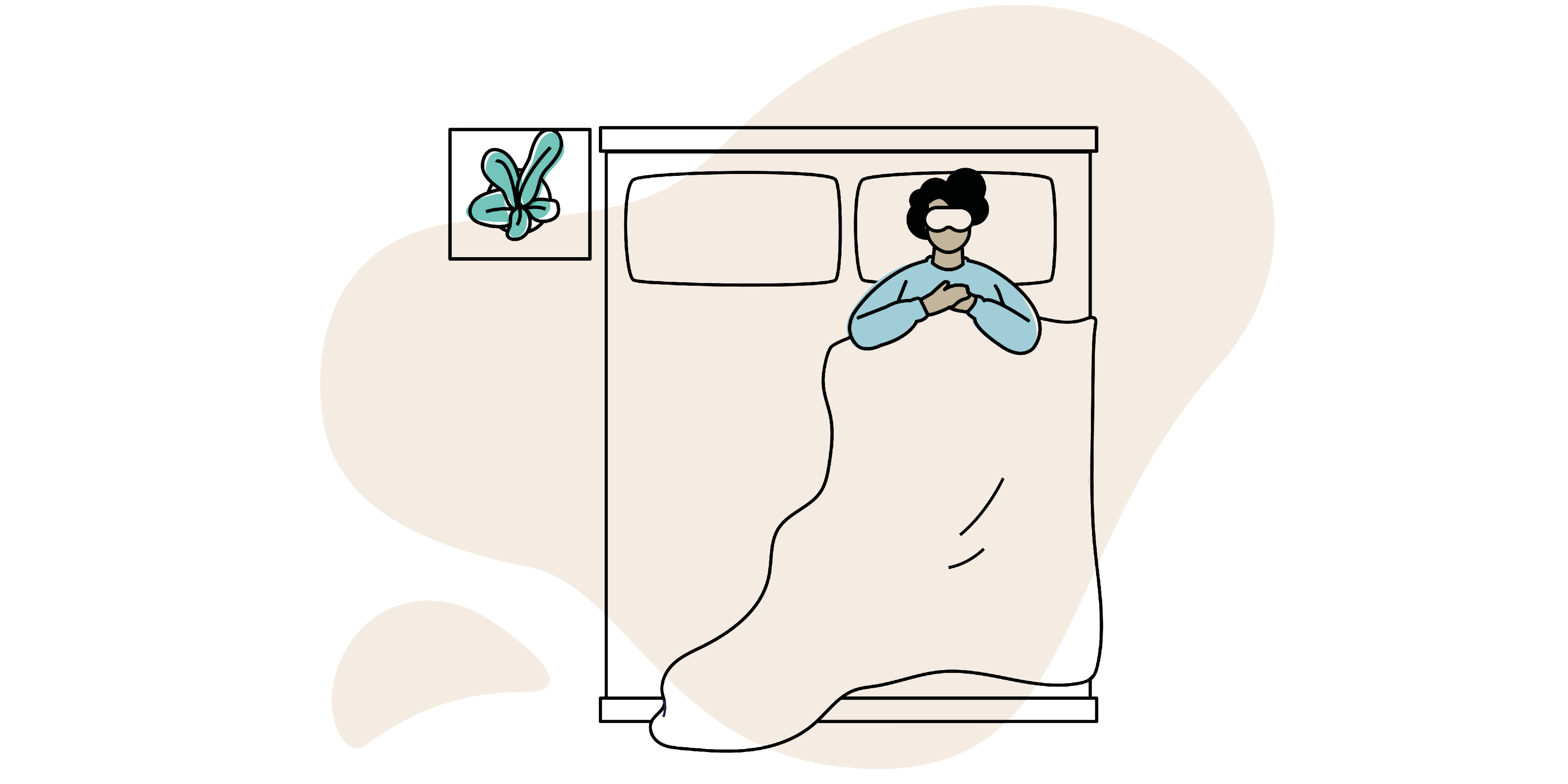Sleep

Did you know?
- We spend one-third of our lives asleep
- It's recommended that adults up to the age of 64 need 7-9 hours of sleep per night
- Almost 1 in 5 people in the UK aren’t getting enough sleep
- Those between the ages of 25 – 50 are the worst affected by poor sleep patterns
Why sleep matters
Sleep plays a vital role in maintaining our overall health and wellbeing. When we sleep our brains and bodies undergo a series of processes – like an MOT – where cells are repaired, hormones are released and energy is restored. Poor sleep, or not having enough sleep, affects how we feel and function. Short-term effects can include irritability, drowsiness, problems with concentration and low energy levels. Over a sustained period of time, poor sleep can impact on our quality of life, potentially increasing our risk to a number of health issues including anxiety, depression, high blood pressure and diabetes.
Tips for better sleep
Be consistent
If you can, try to go to bed at the same time each night and get up at the same time each morning, including weekends. This helps set your body’s internal clock and optimises the quality of your sleep. Choose a bed time when you normally feel tired so you don’t start the night tossing and turning.
Avoid sleeping in – even on weekends. When we lie in at the weekend, our natural sleep-wake signals are disturbed, which can then produce that groggy Monday morning feeling. If you need to make up for a late night, opt for a daytime nap (before 3pm) rather than sleeping in. This allows you to pay off your sleep debt without confusing your body clock.
Create a restful environment
You may not always have much control over your sleep environment, for example, if you're staying away from home or have young children. But there may still be small changes you can make:
- Keep your room cool, dark and quiet. You could consider using room-darkening blinds, earplugs, a fan or other devices to create an environment that best suits your needs.
- Consider doing calming activities before bedtime, such as reading, taking a bath or using relaxation techniques.
- Exposure to blue light can make it challenging to fall asleep. If you can, avoid having your mobile, tablet or laptop where you sleep.
Include physical activity in your daily routine
Being physically active during the day is one of the best ways to ensure a good night’s sleep. It doesn’t have to be strenuous – light exercise in the fresh air can help you fall asleep more easily at night. However, avoid exercising just before bed as the stimulatory effect of physical activity can increase alertness in some.
Be mindful of what – and when - you eat and drink
Try to avoid heavy or large meals within a couple of hours of bedtime. If your body is working to digest food, it’s not able to get into a restful state as it would otherwise. Snacks before bedtime are fine but steer clear of sugary foods/drinks which can cause a spike in glucose and energy levels. Caffeine and alcohol are also harmful to sleep. The stimulating effects of caffeine can take hours to wear off and whilst alcohol might make you feel sleepy at first, it can disrupt sleep later in the night.
Eating a balanced diet improves sleep generally, but some foods are particularly beneficial, such as milk, chicken, turkey and pumpkin seeds. They contain the chemicals tryptophan and serotonin, which are vital for the production of melatonin, the hormone that promotes sleep. Find out more.
Clear your mind
Stress, anxiety and sleep problems are interlinked. If you often lie awake at night, worrying about the next day, it can feel impossible to unwind. Writing down your thoughts before bed can be an effective way of processing feelings/stressors to then set them aside for the next day. Find out more.
Support and guidance
It’s not always possible to resolve sleep problems by yourself. If this is the case, speak to your GP so they can identify any underlying cause and ensure you receive the right treatment. You may also benefit from accessing the support available at the University:
Speak to your line manager
If you feel comfortable doing so, have a conversation with your line manager. They are best placed to work with you and signpost you to the support available. If you aren’t able to speak to your line manager, you can get in touch with your HR Officer.
Seek advice from the Occupational Health Service
If your capacity to carry out work is being affected, the Occupational Health Service can determine if there are workplace adjustments and support that may help you. You will need a management referral to Occupational Health for assessment. These can be made by your line manager, health and safety manager, or by HR.
Workplace Counselling
If stress, distress or psychological challenges are affecting how well you sleep the Workplace Counselling team are here to help. This service is completely confidential and you can contact the office through a self-referral.
Employee Assistance Programme
If you would prefer to access support outside the workplace, the University’s Employee Assistance Programme offers wellbeing and mental health support. This free service is available 24 hours a day, seven days a week.
Further resources
- Switching off – relaxation and sleep: the University’s OD&PL workshop, delivered by the Staff Counselling and Psychological Support team aims to help participants maintain and improve energy levels by introducing and exploring techniques to aid relaxation for a good night’s sleep.
- Sleep problems: Every mind matters: NHS information and signposting if poor sleep is affecting your daily life.
- Sleepstation: free NHS access to online personalised support and help with sleep.
- The Sleep Charity: national sleep helpline, run by a team of specialist trained sleep advisors (calls are charged at local rates).
